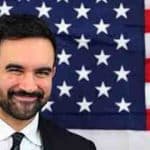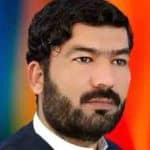UNITED NATIONS, Jul 11 (APP): The UN High Commissioner for Human Rights, Volker Turk on Tuesday, called for dialogue and respect for religious tolerance as member states met in Geneva in response to the recent burning of the Holy Quran in the Swedish capital.
Addressing the Human Rights Council, he noted that the holy book was the “core of faith” for well over one billion Muslims, according to a UN press release issued at UN Headquarters in New York.
The 47-member body is debating a motion, brought by Pakistan in response to last month’s incident, seeking a report from the UN rights chief on the topic and calls on states to review their laws and plug gaps that may “impede the prevention and prosecution of acts and advocacy of religious hatred.
In his remarks, Turk said that those who had burned the Holy Quran most likely did so “to express contempt and inflame anger”, but warned that these acts also aimed “to drive wedges between people”, to provoke and transform differences into hatred.
Dialogue to repair differences of opinion and faiths is key, the UN rights chief continued, as he condemned hate speech against and by people of all mainstream and minority faiths, highlighting instead the benefits of diversity to all societies.
The right to believe – or not to believe – “is fundamental to the Universal Declaration of Human Rights”, the High Commissioner told the Human Rights Council, which met on Tuesday for the urgent debate at the request of Pakistan.
He said leading politicians and senior religious figures have a “particularly crucial role to play” in speaking out clearly against disrespect and intolerance.
“They should also make it clear that violence cannot be justified by prior provocation, whether real or perceived”, he added.
The High Commissioner stressed that limiting free speech or expression to any degree must remain “as a matter of fundamental principle” an exception, especially given that laws limiting speech are “often misused” by authoritarian governments.
But some acts of speech constitute an incitement to violence and discriminatory action, he added.
Numerous acts of violence, terror and mass atrocity, have targeted people based on their religious beliefs, including inside places of worship.
Although international law is clear on the issue, national courts must determine each case in a manner “that is consistent with the guardrails that international humanitarian law provides”, he said.
“My second point is this: advocacy of hatred that constitutes incitement to violence, discrimination and hostility should be prohibited in every State”, Turk told delegates to the Council in Geneva.
He gave examples of abusing Muslim women who wear a headscarf, sneering at people with disabilities, or making false claims against migrants and minorities, noting that “all such hate speech is similar” stemming from the idea that some are less deserving than others.
The tide of hate speech is being powered by social media, and increasing discord and polarization, he warned.
Next, he called for rising hate speech to be addressed through dialogue, education, greater awareness, and interfaith or community engagement.
He highlighted the UN Strategy and Plan of Action on Hate Speech, as a key support tool for governments to counter it.
He urged countries to redouble their efforts to implement the Plan.
Faced with the increasing weaponization of religious differences for political advantage, he said societies must not take the bait.
“We must not allow ourselves to be reeled in and become instrumentalized by these merchants of chaos for political gain – these provocateurs who deliberately seek out ways to divide us.”
His overriding goal in addressing the debate was to stress the “profound enrichment” provided by diversity, existential views “and our thoughts and beliefs”.
The UN rights chief said all societies need to become “magnets of respect, dialogue and cooperation among different peoples, as has been achieved by multiple civilizations in the past.”
Follow the PNI Facebook page for the latest news and updates.









